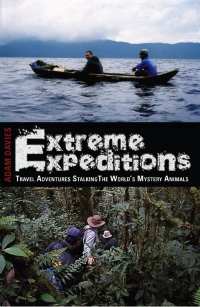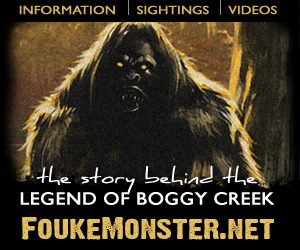In The Field? Be Prepared!
Posted by: Adam Davies on June 8th, 2011
In response to the suggestions posted on my last article, I thought for my next posting I would focus a little on what I consider to be essential for researchers to know when they are going out into the field. Of course, you could go to very great detail, but here are a few of my key thoughts. Please feel free to contribute your own, the more comprehensive the information the better. I should also add, that I have made plenty of mistakes myself, over the years, so some of these tips are painful lessons learned!
Top Ten tips for research
1) Know your environment
This is essential, as it will form the basis of everything that you subsequently do. For example, the kit you take is hugely determined by whether you are going to mountains, jungle or desert. Within this, please do some research on the local people and customs. People will respond to you much more positively if they think you have at least made an attempt to understand them, and their culture. It is respectful, after all.
2) Know your kit
It’s no good taking the latest piece of high tech gear, if you are going to the jungle, and it falls apart in humidity. Low tech stuff can perform very well. For example, I had three cameras bust on my team in the Congo, and the one that took the best pictures was the old school film camera.
3) Do the fitness
Right, you have got your kit, and made some friends amongst the locals, and there you are puffing away at the back, totally exhausted? You do not have to be an athlete to go into some of the more hostile environments in the world, but if you are not fit you are risking your safety, and you may cause your team to lose out on its objectives. So get walking, and with a backpack.
4) Pack light
Throw away what you don’t need. You have packed your stuff, and you must take that peanut butter, because you can’t live without it? Remember, you may well be carrying that pack you are straining to put on your shoulders, and if you can barely lift it now, how are you going to manage when you have been trekking and had three or four hours sleep a night for weeks?
5) Be prepared
Have a list of prepared questions and photos of the indigenous animals if possible. Of course, you are going to have to respond to what the person you are interviewing says at the time, but the more structured and planned your questions are, the better you will use your time.
6) Be at the ready
Make sure the stuff you really need is instantly accessible. It sounds obvious, but if you can’t find your camera, and something does come along, you will really regret it.Also, basic survival kit, like water purification tablets, need to be carefully stored. You will be upset, if you lose them, in more ways than one!
7) Don’t waste your time
Really go looking for something that you think is plausible. I have looked for cryptids all over the world. You are going to need to find evidence that has to be independently and scientifically corroborated, that’s the point. However, if you don’t think there is any possibility it does exist in the first place, you are not going to enjoy wandering around spending your own money in what you have already pre-decided, is a fruitless quest.
8) Got change for that?
Make sure you have the right currency, and divide it up! Dollars mostly talk, which is great, but you need to have plenty of the local currency, and you need it in small denominations. For example, wandering into a village in India with nothing but high denomination bank notes could end up with huge embarrassment for you and your hosts, as no one will be able to change it! Also, some countries are very particular about changing currency. For example, in Sumatra we had a really tough job changing bills unless they were in the most pristine condition.
9) If you touch it, you risk ruining it!
Label your samples correctly and avoid any contamination, if at all possible. Remember to tell your guides this, who may not be familiar with the complexities of DNA analysis, and are instinctively likely to grab an unusual find as they will be just as excited as you are.
10. Have fun!
Some of the best experiences I have had in my life have been in the field. If you are about to embark on research, I wish you the best of luck, and many great adventures to you!
About Adam Davies
I am an explorer, adventurer, and a cryptozoologist. I've traveled to some of the most remote and dangerous parts of the world in search yet-to-be-discovered animal species. From the dense jungles of the Congo and Sumatra, to the deserts of Mongolia, and the mountains of Nepal, I have traveled the world in search of scientific evidence of the existence of these creatures.









